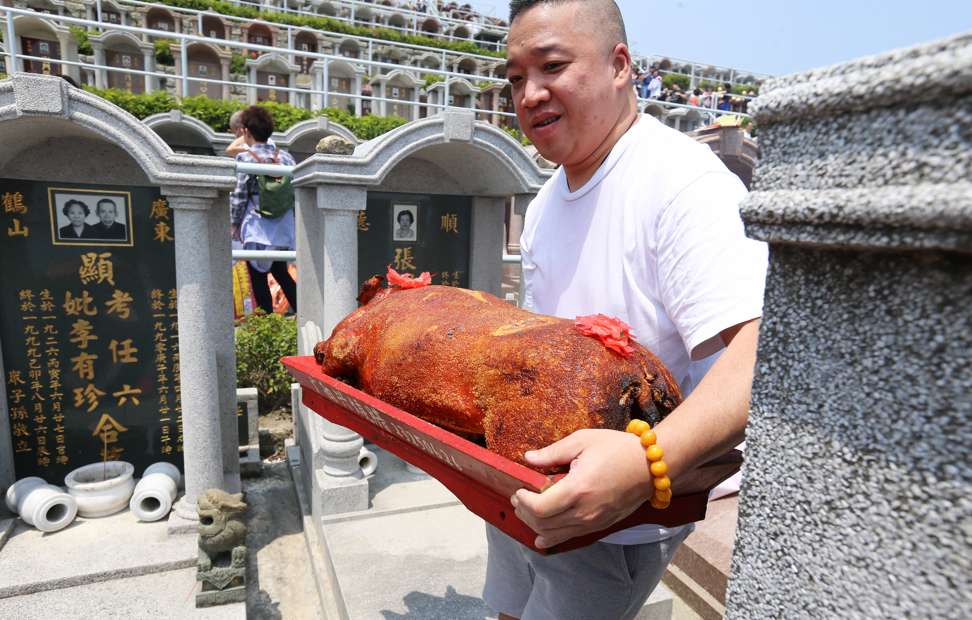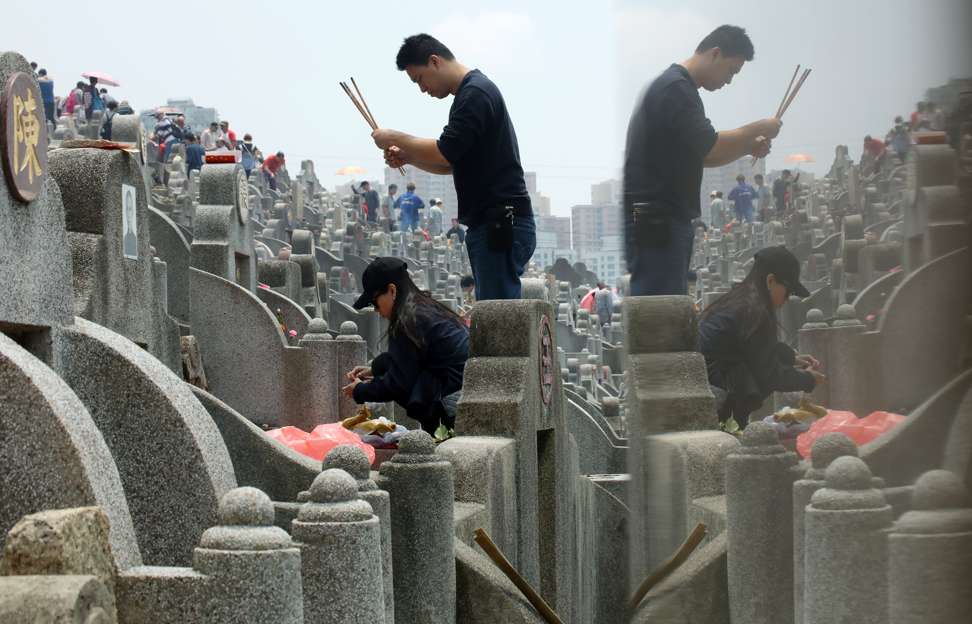
Hong Kong’s dead being left out in the cold: advocates demand fairer public columbarium system
New regulations to force unlicensed columbarium operators to close, leaving 300,000 to find a new venue
Campaigners have urged the Hong Kong government to improve access to public columbarium niches as the industry warned that draft legislation may threaten to displace up to 300,000 urns now housed in private facilities.
Alliance for Concern over Columbarium Policy convenor Eddie Tse Sai-kit said the existing lottery system of allocating public niches needed to be improved so people who have been waiting longer have a higher chance of securing a place.
The call came on Tuesday, when hundreds of thousands of people visited and swept the graves of their ancestors on the annual Ching Ming Festival and a week before the Legislative Council is set to debate the Private Columbaria Bill.
The bill aims to regulate the operation of private niches through a licensing system.
Tse called on the government to increase the proportion of public niches to 80 per cent of all places from the current 55 per cent, or 470,000 out of 860,000.
“It’s unreasonable to force residents to spend money that is enough to buy a flat on an urn niche,” Tse said on an RTHK programme.

Funeral Business Association life chairman Ng Yiu-tong warned that up to 300,000 urns in unauthorised private columbariums could be displaced if the bill is passed.
Under the bill, only licensed columbariums can offer niches, but the latest government figures show there are only 30 authorised private columbariums out of 153 known operators across Hong Kong.
I really don’t know what to do now. I’m waiting [for a public niche] for myself, not to mention those who died 30 or 40 years ago
Ng said it would be difficult to find alternative spaces for the affected urns due to expensive authorised private niches and a shortage of public niches.
Three niches in Po Fook Hill in Sha Tin were advertised online for up to HK$3.5 million each, while people in the industry said it was normal for a space to cost more than HK$500,000.
An Ombudsman report released last year found just two out of 24 proposed public columbariums scheduled for development in 2010 and 2011 had been completed, providing just 2,540 niches and falling well short of the 220,000 cremations expected to take place over the next few years.
A listener who phoned into the RTHK programme said he had been participating in the public niche lottery for eight years, but still did not have a place for his father’s ashes, which were now in an unauthorised venue in Hung Hom.
Another caller said his grandparents’ ashes had been housed in a Tsuen Wan temple for more than 30 years, but it had recently been told it could no longer operate a columbarium.
“Hong Kong is really torn apart, even for the dead people,” he said. “My ancestors have been there for over 30 years and the government suddenly asked us to move them away without telling us where to go.”
“I really don’t know what to do now. I’m waiting [for a public niche] for myself, not to mention those who died 30 or 40 years ago.”

Tse said the lottery system was flawed because those who had been waiting a long time had as equal a chance of getting a niche as those who had just joined the queue. He said those who had spent more years in the system should stand a better chance.
Ng called for a six-year phasing-out period for unlicensed columbariums after the bill is passed, so operators can arrange a licence or tenants can have more time to move ashes.
Relatively few people choose to scatter the ashes of their loved ones in memorial parks or at sea, with only 4,904 such cases out of 43,556 cremations last year.
During Ching Ming, people often burn joss paper or incense at graves for their deceased ancestors. By 4pm on Tuesday, 76 hill fires had been reported across the city, the Fire Services Department said.
Additional reporting by Clifford Lo

